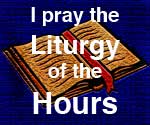
As we celebrate the birth of Christ, the church reminds us that discipleship is more than songs and adoration. The annual remembrance of Stephen's martyrdom on the day following the Feast of the Nativity, leads us to the inevitable conclusion that the coming of the Messiah meets resistance and violence. Mary's song suggests that the social changes that are the inevitable results of the Incarnation will be resisted by forces opposed to the reign of God. Thus, in her wisdom, the Church reminds us of the cost of discipleship as we celebrate the mystery of the Incarnation.
In the western church, this week which begins with the birth of the Saviour, includes remembrances of the first martyr, St. Stephen the Deacon (December 26), the sacrificial life and death of Saint John the Apostle (December 27), the unconscionable murder of children(December 28), and culminates with the Circumcision of Christ on January 1. James Kiefer writes that since,"we are more squeamish than our ancestors, modern calendars often list it as the feast of the Holy Name of Jesus, but the other emphasis is the older. Every Jewish boy was circumcised (and formally named) on the eighth day of his life, and so, one week after Christmas, we celebrate the occasion when Our Lord first shed His blood for us. It is a fit close for a week of martyrs, and reminds us that to suffer for Christ is to suffer with Him."
So as we celebrate the miracle of the holy night, let us remember that we are called to leave the manger and follow our Lord.
The African American theologian and mystic Howard Thurman wrote:
"When the song of the angels is stilled,
When the star in the sky is gone,
When the kings and princes are home,
When the shepherds are back with their flock,
The work of Christmas begins:
To find the lost,
To heal the broken,
To feed the hungry,
To release the prisoner,
To rebuild the nations,
To bring peace among brothers,
To make music in the heart."





